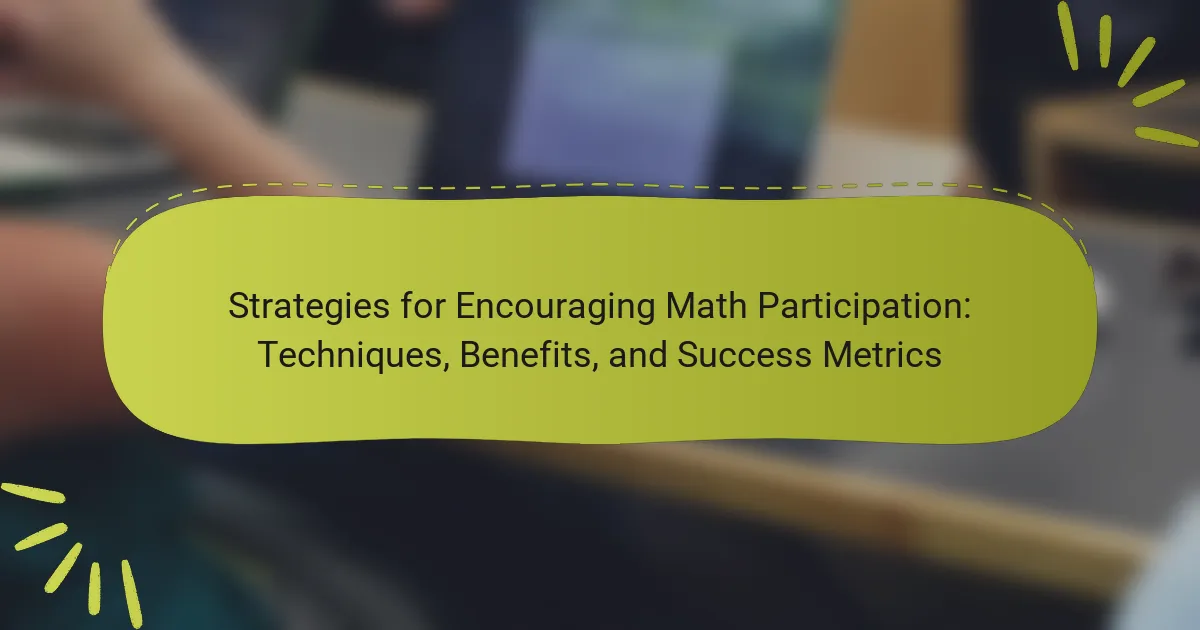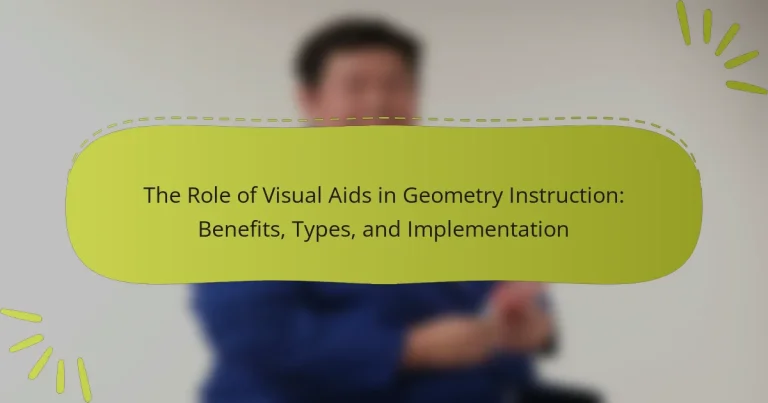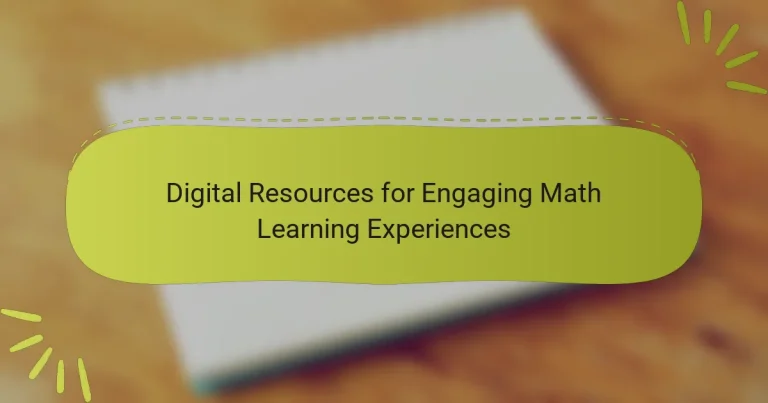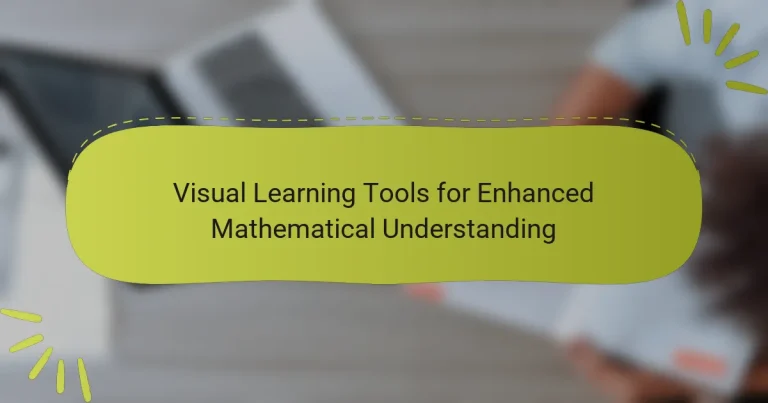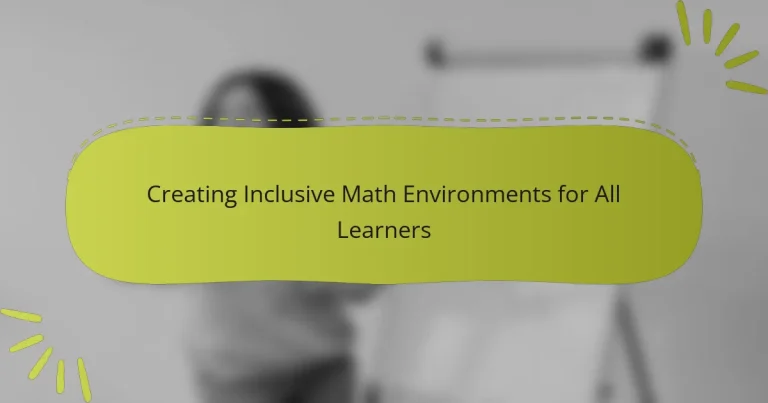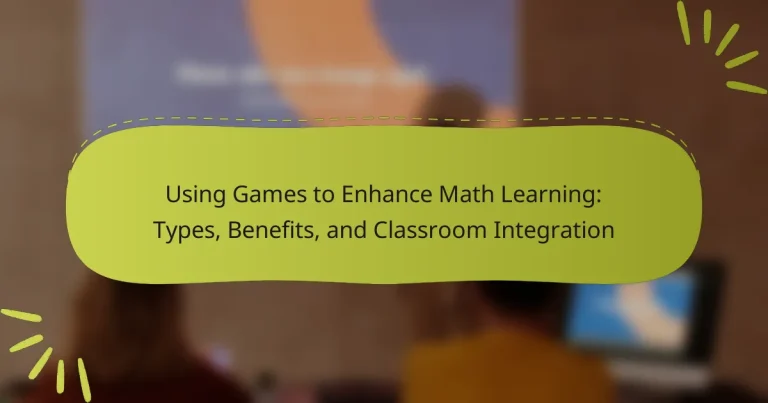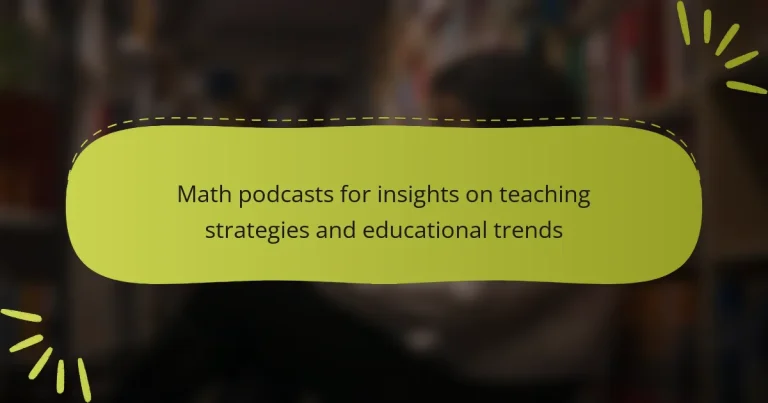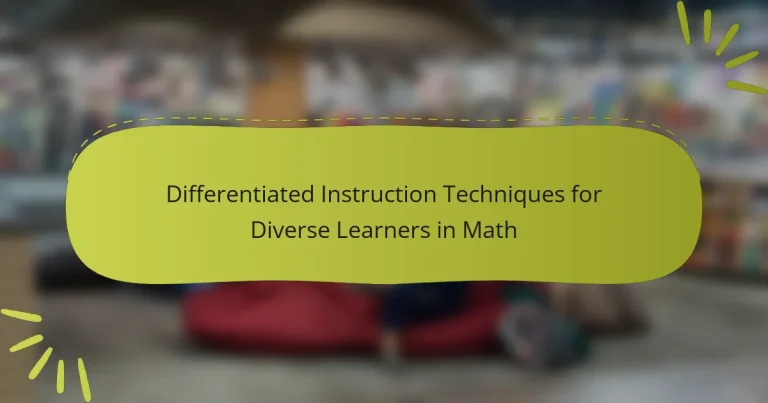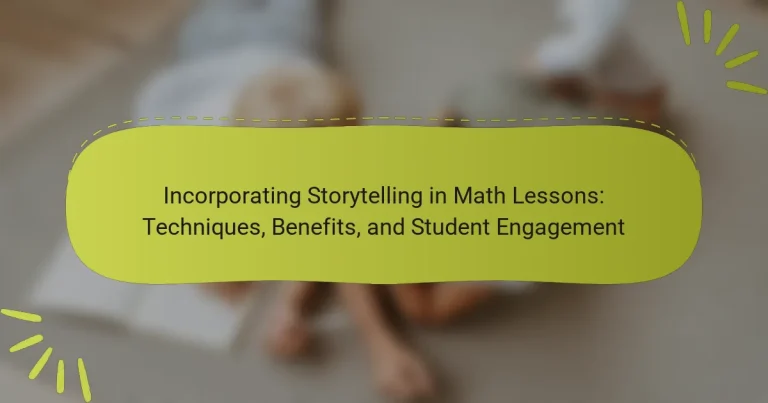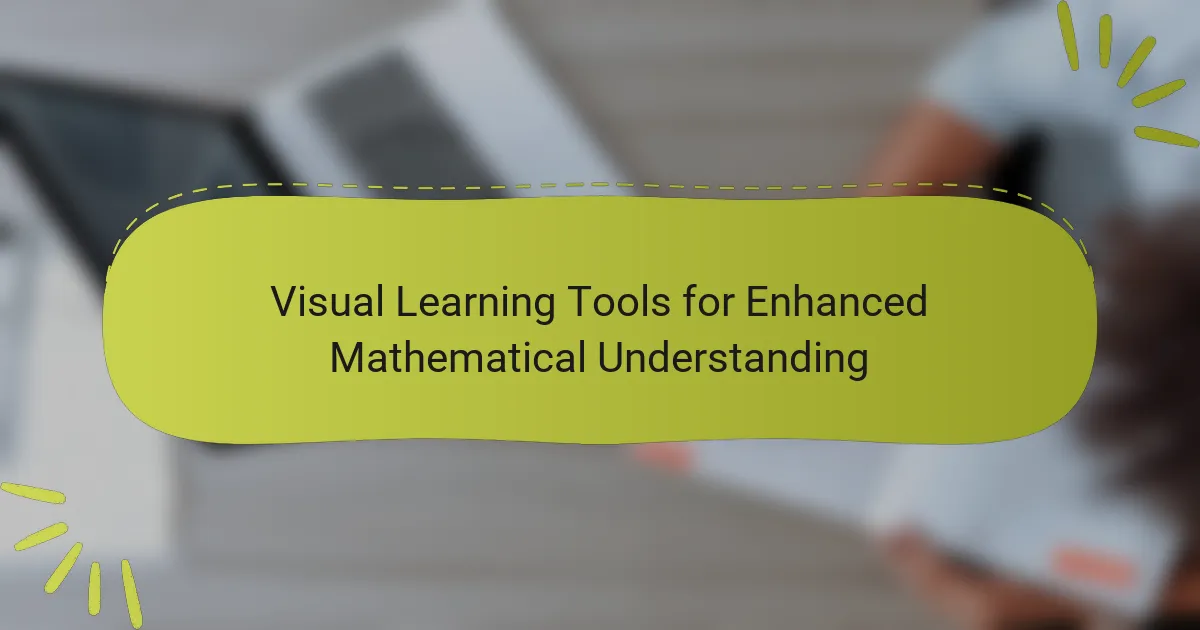

Visual Learning Tools for Enhanced Mathematical Understanding
Visual learning tools are educational resources that utilize visual aids such as diagrams, graphs, charts, and manipulatives to enhance mathematical understanding. These tools facilitate the visualization of concepts and relationships, leading to improved comprehension and retention among students. Research has shown that integrating visual aids into lesson plans can significantly boost engagement and learning outcomes,…
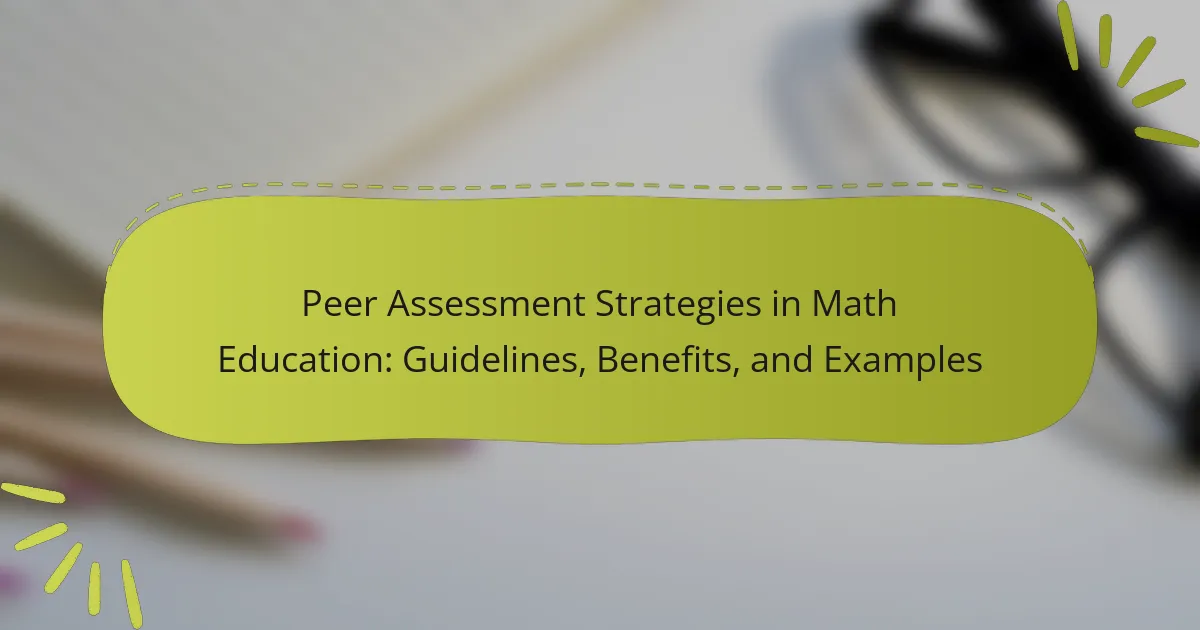
Peer Assessment Strategies in Math Education: Guidelines, Benefits, and Examples
Peer assessment strategies in math education involve students evaluating each other’s work to enhance learning outcomes. These strategies, which include structured peer reviews, collaborative problem-solving, and peer teaching, promote critical thinking, communication, and engagement among students. Research indicates that effective peer assessment not only improves understanding and retention of mathematical concepts but also fosters a…
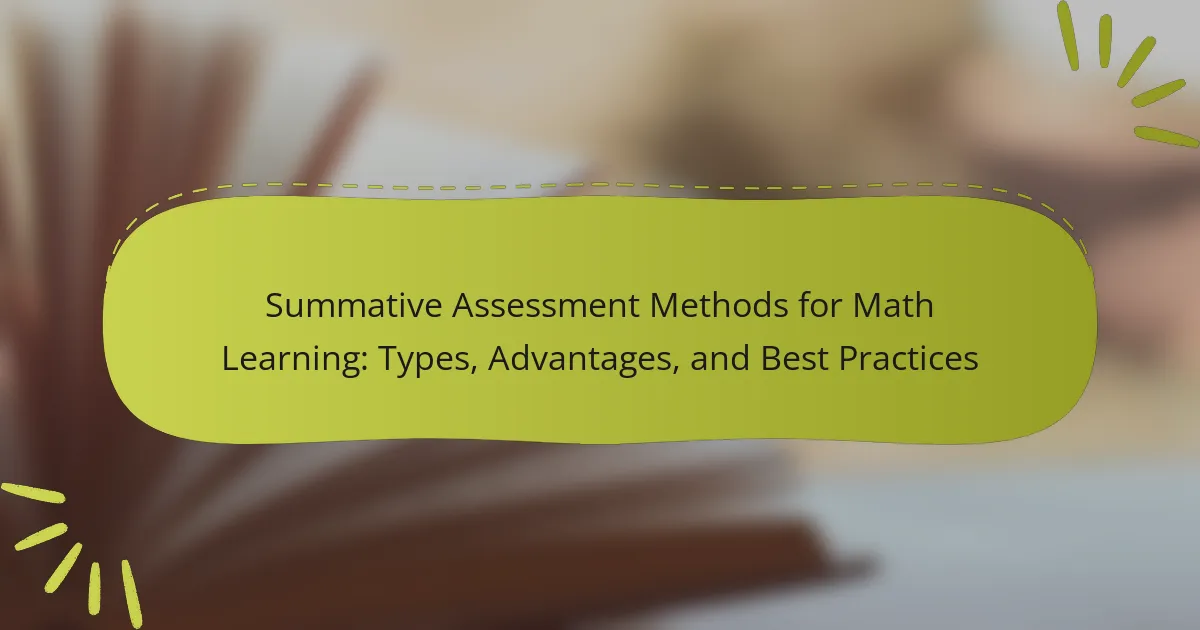
Summative Assessment Methods for Math Learning: Types, Advantages, and Best Practices
Summative assessment methods for math learning evaluate student understanding at the conclusion of an instructional period. These methods include standardized tests, final exams, and cumulative projects, measuring knowledge retention and skill application while providing insights into student performance relative to learning objectives. The article outlines effective implementation strategies, such as aligning assessments with learning goals…
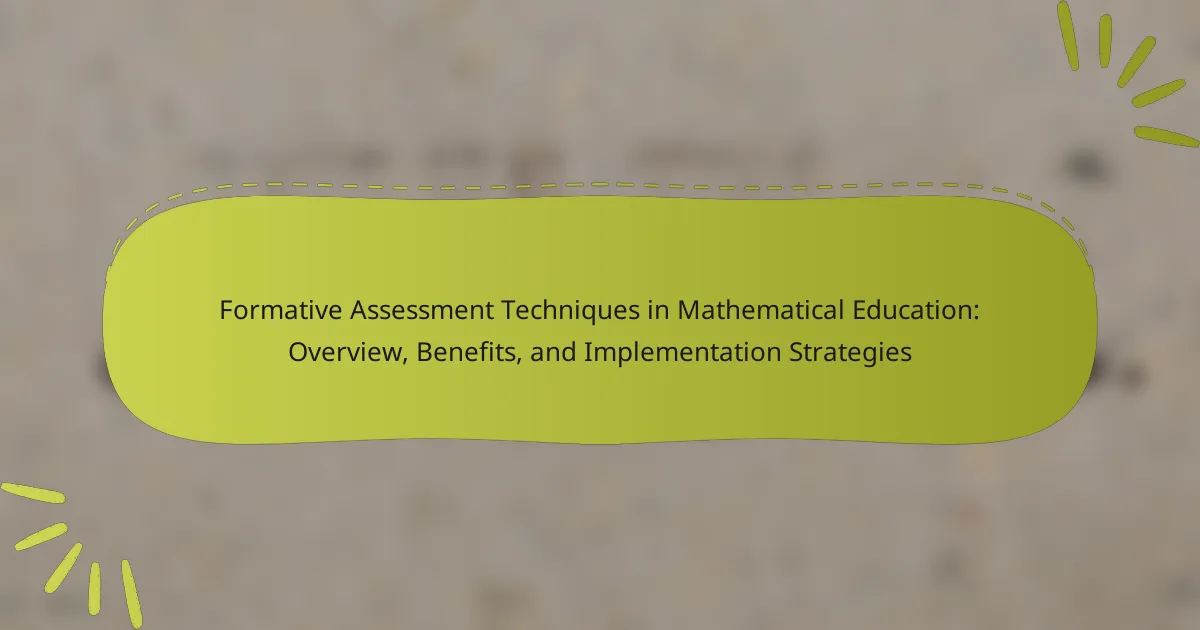
Formative Assessment Techniques in Mathematical Education: Overview, Benefits, and Implementation Strategies
Formative assessment techniques in mathematical education are essential methods for evaluating student learning throughout the instructional process. These techniques, which include quizzes, peer assessments, and observational assessments, provide continuous feedback to both students and teachers, enabling real-time identification of student understanding and misconceptions. Research indicates that implementing these techniques can enhance student achievement significantly, with…
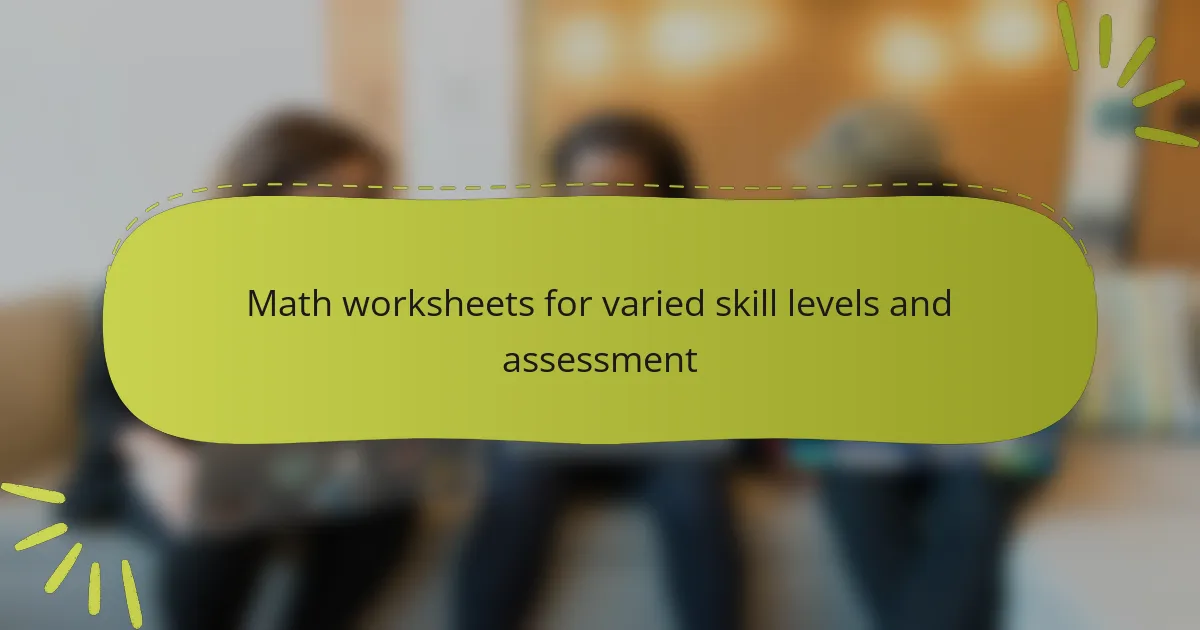
Math worksheets for varied skill levels and assessment
Math worksheets are educational tools tailored for varied skill levels, designed to help students practice and reinforce mathematical concepts. These worksheets encompass a spectrum of problems, from basic arithmetic to advanced topics such as algebra and geometry, ensuring that all students can engage meaningfully with the material. They serve dual purposes: assessing student understanding and…
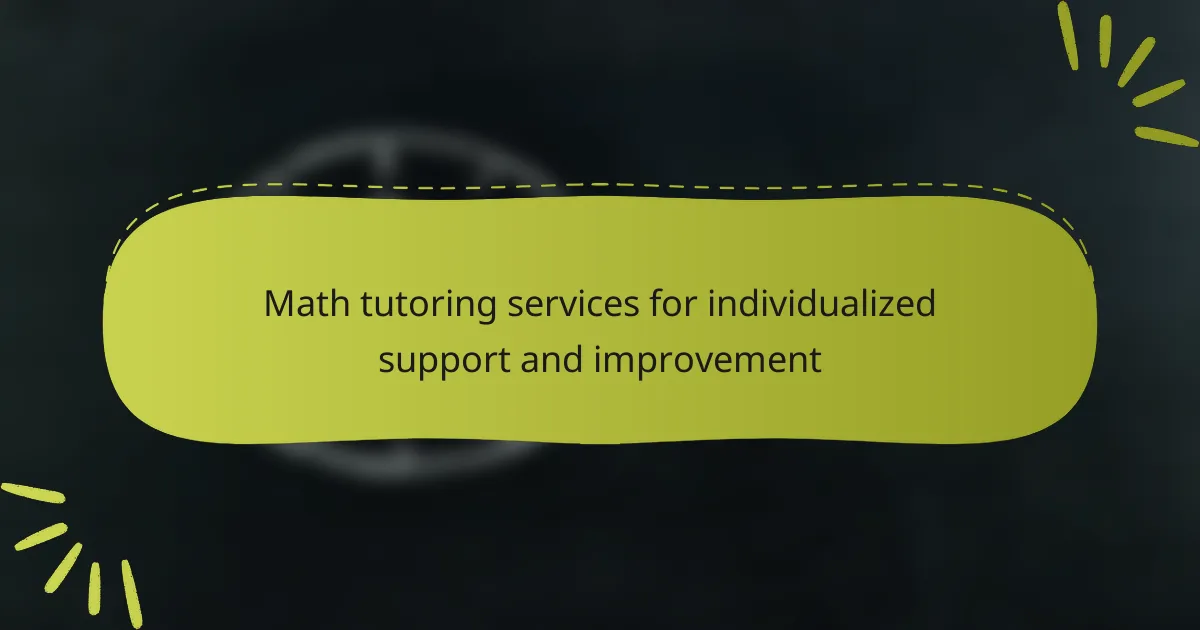
Math tutoring services for individualized support and improvement
Math tutoring services offer personalized assistance aimed at improving students’ mathematical skills through tailored one-on-one sessions. These services involve an assessment of each student’s current knowledge to identify specific areas needing improvement, followed by the creation of customized lesson plans. Topics covered in math tutoring include algebra, geometry, calculus, and statistics. Research highlights the effectiveness…
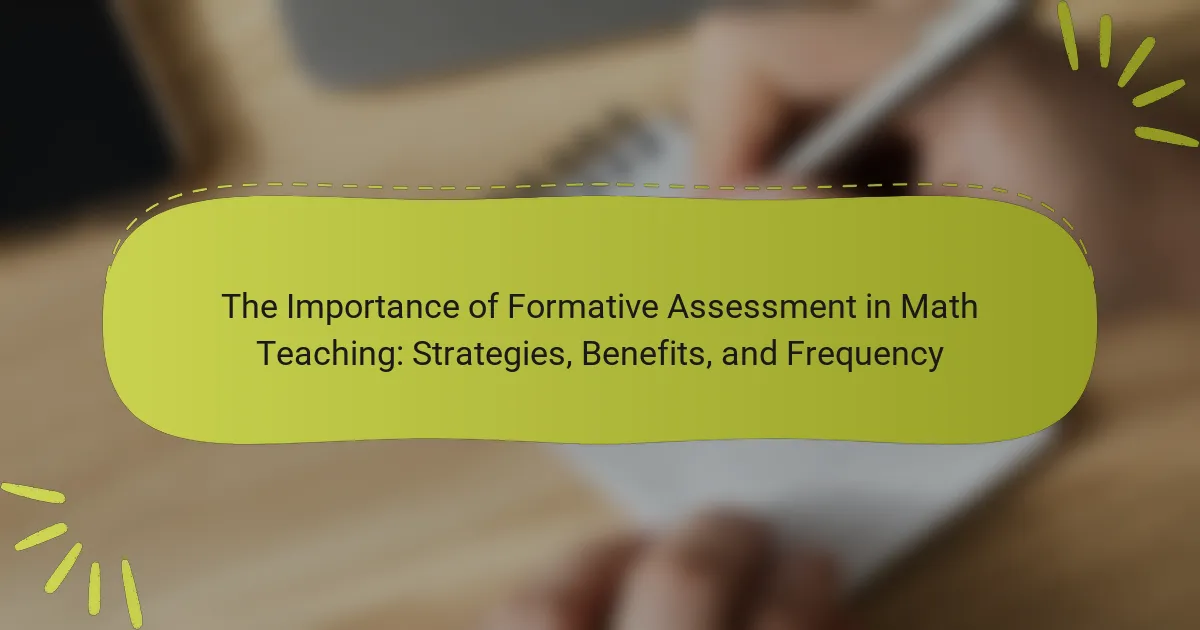
The Importance of Formative Assessment in Math Teaching: Strategies, Benefits, and Frequency
Formative assessment is a vital process in math teaching that provides continuous feedback to educators and learners, helping to identify understanding and misconceptions in real-time. This article explores the significance of formative assessment, highlighting its ability to enhance student learning outcomes through effective implementation and regular frequency, ideally every 2-3 weeks. Key strategies for successful…
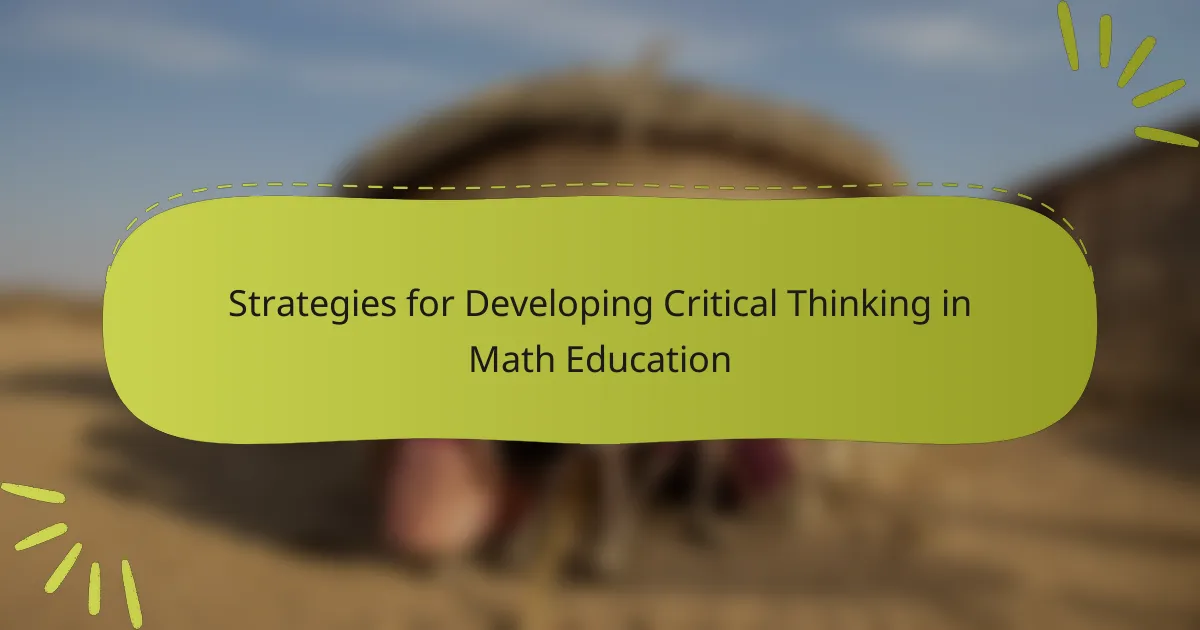
Strategies for Developing Critical Thinking in Math Education
The article focuses on strategies for developing critical thinking in math education. Key methods include problem-based learning, which encourages students to tackle real-world problems; Socratic questioning, which promotes deeper understanding through dialogue; and collaborative learning, which enhances teamwork and diverse perspectives. Additionally, the integration of technology is highlighted as a means to create interactive experiences…
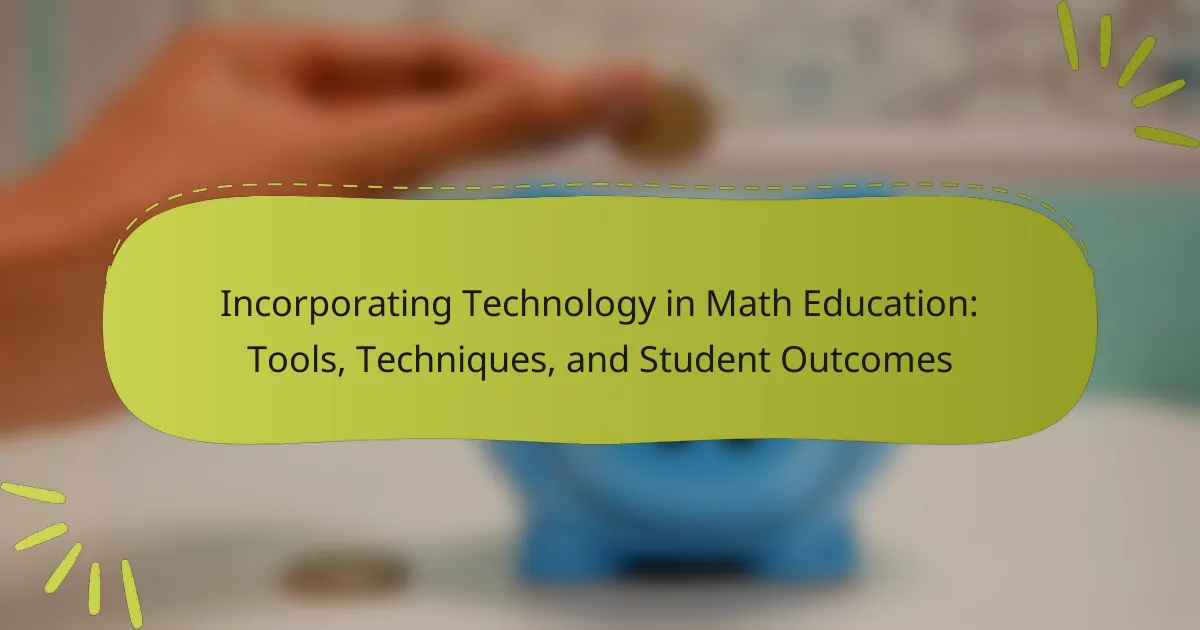
Incorporating Technology in Math Education: Tools, Techniques, and Student Outcomes
The article focuses on the integration of technology in math education, highlighting various tools and techniques that enhance learning outcomes. Key tools include interactive software like GeoGebra, online platforms such as Khan Academy, and digital resources that facilitate visualization and problem-solving. The article outlines strategies for educators to effectively incorporate these technologies, including the use…
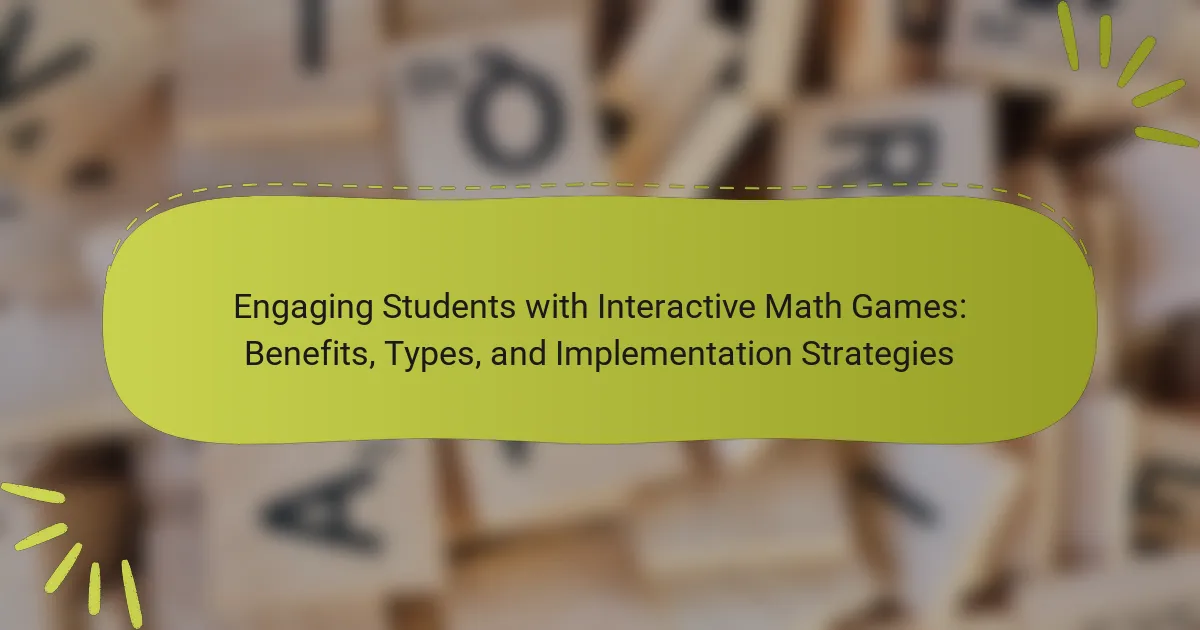
Engaging Students with Interactive Math Games: Benefits, Types, and Implementation Strategies
Interactive math games are activities designed to enhance mathematical skills through engaging and enjoyable methods. These games, which can be digital or physical, facilitate practice in key concepts such as addition, subtraction, multiplication, and division, while also fostering competition and collaboration among students. Research indicates that participation in these games can significantly boost student motivation…
